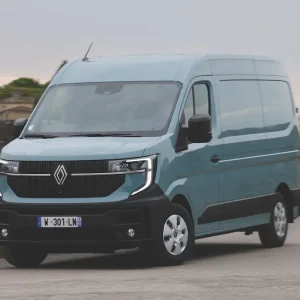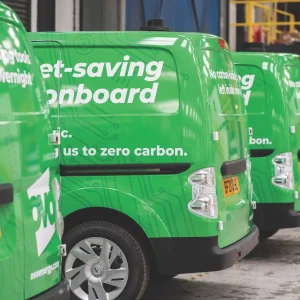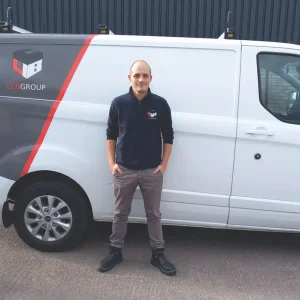Battery-electric technology might not be the best alternative to the internal combustion engine when it comes to tough, off-road vehicles such as pick-up trucks – particularly because of the need to fit a battery that could be vulnerable to damage. Could hydrogen be the answer?
Toyota intends to find out and has developed a fuel cell prototype Hilux pick-up truck at its Burnaston plant in Derbyshire – making it a worthy winner of the Editor’s Choice Award.
The prototype features a powertrain based on that of the second-generation version of Toyota’s Mirai hydrogen car.
Three high-pressure fuel tanks, mounted under the floor of the truck, give the prototype an expected range of 365 miles between fill-ups.
Electricity generated by the fuel cell – which is placed under the bonnet where the engine of a diesel Hilux would be – is stored in a hybrid battery positioned at the front of the Hilux’s load deck, before it is fed to the drivetrain.
The prototype is rear-wheel drive – Toyota says the packaging is too tight to allow an all-wheel drive version currently, but that this is a future target.
The prototype Hilux was developed at the facility in Burnaston together with a consortium including Ricardo, ETL, D2H Advanced Technologies and Thatcham Research. Funding was subsequently gained from the government through the Advanced Propulsion Centre, a non-profit organisation supporting the development of cleaner technologies and new mobility concepts.
Toyota pledged to build 10 examples of the prototype by the end of this year. They will then undergo real-world testing with UK-based customers.
Toyota says its testing will ensure the standards needed for a production model are met – however it has not given any indication about if and when a production version will arrive.
Speaking at the unveiling of the prototype, Toyota Motor Europe senior vice-president Gerald Killmann said the automotive industry should adopt a flexible approach towards decarbonisation technology.
He said: “On our way towards carbon neutrality, hydrogen will play an increasingly important role. Nevertheless, in parallel, we need to decarbonise all of the energy sources for mobility.
“Each of these technologies has different strengths and thus different use cases. Battery electric vehicle is useful in consumers daily trips, while fuel cell has its strength especially in long distance or heavy load areas like trucks, or a 24-hour user like taxis or buses.
Killman predicts that in the future, technologies such as BEV and fuel cell will converge and overlap to provide mobility solutions.
“[The] Hilux is a heavy-load vehicle and thus very good as a starting point, and really suitable for fuel cell technology, hence the initiative with this prototype,” he said.
Toyota has called for more government support to enable the potential of hydrogen for LCVs to be realised, arguing that a national, long-term, cross-sector strategy and guaranteed delivery plan are required to give confidence to investors and consumers alike.
For the automotive sector, it says a national programme to ensure sufficient hydrogen supply and refuelling infrastructure is critical. In the meantime, it plans to demonstrate why investment in hydrogen would be money well spent.
Highly Commended: ULEZ scrappage scheme
Whereas the national government is ambiguous in its backing of a green agenda – as it desperately tries to win support with short-sighted and short-term policies – London Mayor Sadiq Khan is providing an incentive for operators to help improve the capital’s air quality by transitioning to cleaner vehicles. An increase in the grant amount available to scrap vans not compliant with the expanded London ultra low emission zone (ULEZ) has been introduced. The value of the grant available to small businesses and sole traders for each noncompliant van has been increased from £5,000 to £7,000, up to a maximum of three vans (£21,000). In addition, grants for replacing a non-compliant van with an electric van have been increased from £7,000 to £9,000, and the value of payments to retrofit non-compliant vans to meet the ULEZ standard has increased from £5,000 to £6,000.
Federation of Small Businesses (FSB) London infrastructure lead Michael Lloyd said the changes “will make a real difference to many small businesses and sole traders
in the capital”.





